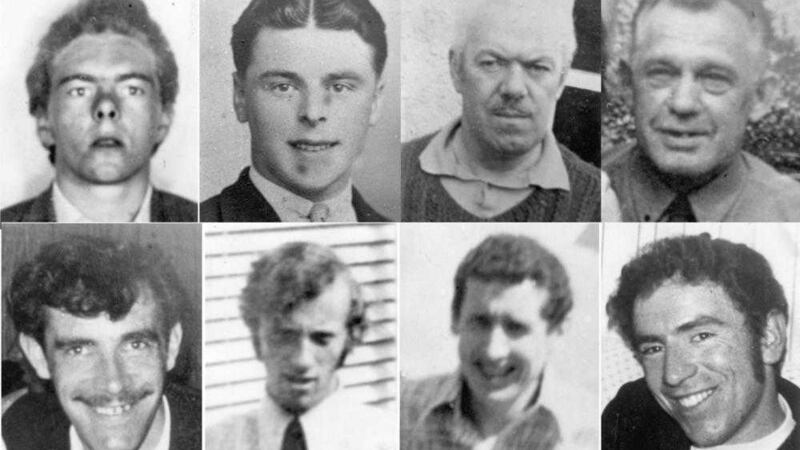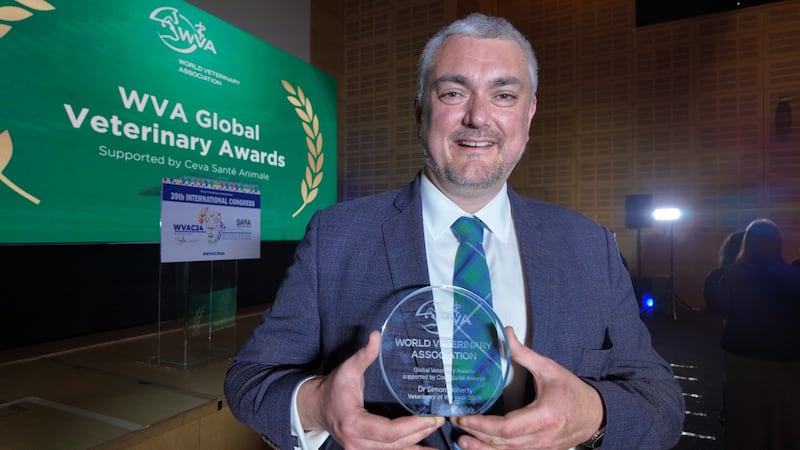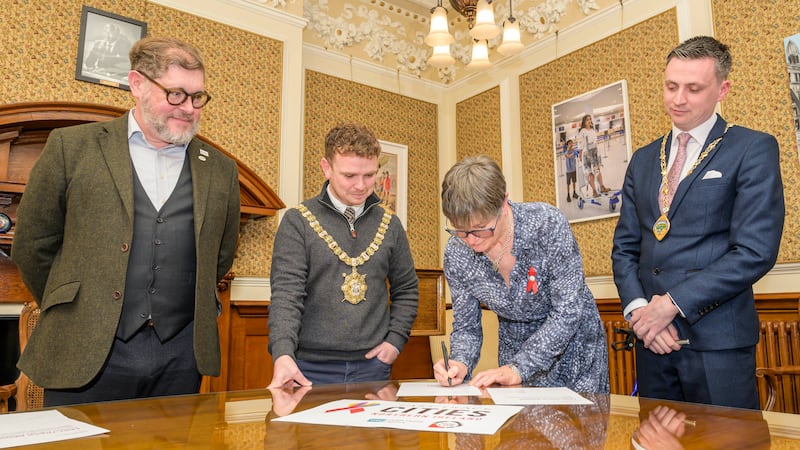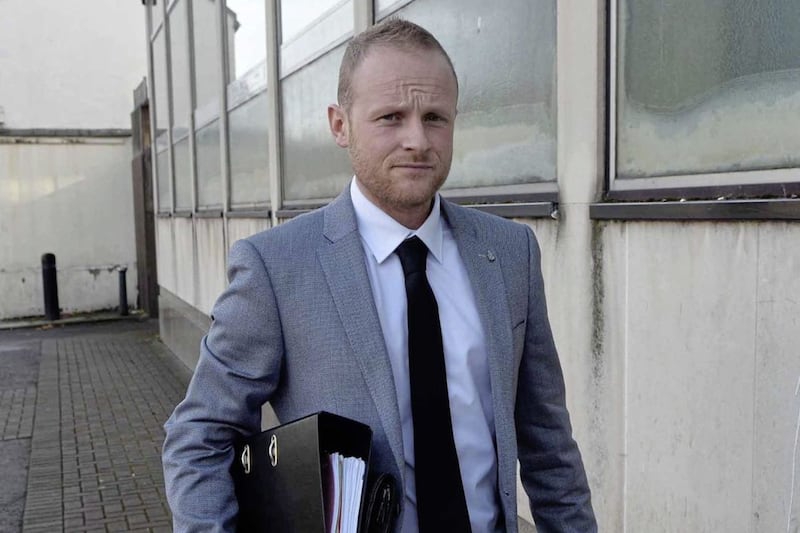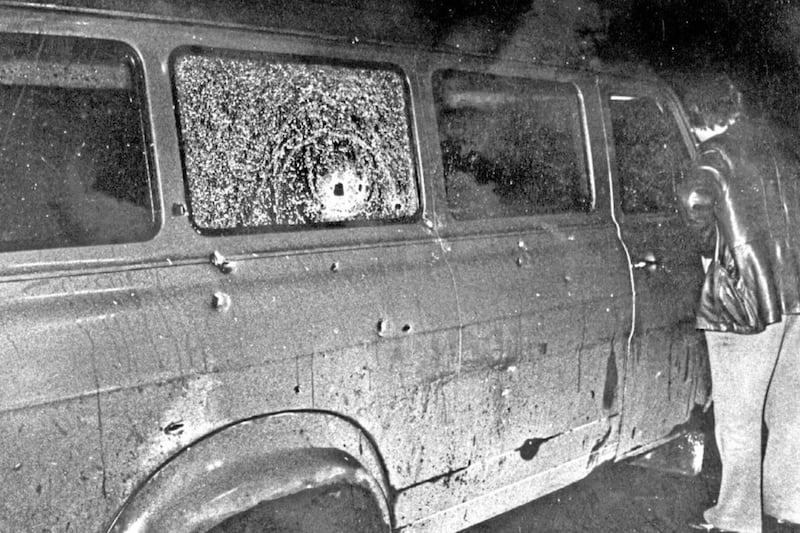An inquest into the murder of 10 Protestant workmen in Co Armagh 40 years ago will go ahead this month, despite concerns from some families.
There were calls to postpone the Kingsmill probe because more than 1,300 pages of police and army intelligence material have still not been handed over.
Fiona Doherty QC, representing the family of John McConville, told a preliminary hearing at Belfast's Laganside Court: "The families are anxious that it is done right. They have waited 40 years."
More than five weeks have been set aside for the inquest, listed to begin on May 23.
The textile factory workers were ambushed as they travelled along the Whitecross to Bessbrook road in rural south Armagh on January 5 1976 - one of the darkest years of the Troubles.
Their minibus was stopped and those on board were asked their religion.
The only Catholic was ordered to flee as the gunmen, who were hidden in the hedges, opened fire.
The 10 men who died were John Bryans, Robert Chambers, Reginald Chapman, Walter Chapman, Robert Freeburn, Joseph Lemmon, John McConville, James McWhirter, Robert Samuel Walker and Kenneth Worton.
Father-of-three Alan Black (72) was hit multiple times but survived.
Ms Doherty said the families wanted an opportunity to read and assess the significance of the sensitive documents
"We know there are at least 1,300 pages of this material," she said.
"It is not my experience in this forum that an inquest has been commenced when that amount of material is outstanding or is disclosed a day or two beforehand.
"Even, if you allow a minute and a half to read each page - that's at least 30 hours.
"A lot of this material is dense and requires extensive analysis.
"Regrettably we do not think it is sustainable to go ahead as scheduled."
According to Peter Coll, barrister for the PSNI and Ministry of Defence, the police papers could, at best, be ready for dissemination next week.
But an indicative timetable for the disclosure of classified military papers could not be provided, the court heard.
Given the age and ailing health of some witnesses being called, the preferable option would be to start as planned, Sean Doran QC, counsel for the coroner told the court.
The outstanding intelligence documentation would not impact on the early evidence but the inquest, which is sitting without a jury, has the flexibility to recall witnesses if necessary, Mr Doran said.
Judge Brian Sherrard, who is presiding over the high-profile case, said he was content to proceed but offered assurances he would look sympathetically at any requests for additional time.
He said: "I am content that the inquest can proceed as planned.
"There is a question of balance between the urgency to proceed and the need to accommodate counsel to have proper focus on the papers."
The Kingsmill attack was claimed by a little-known republican paramilitary group considered to be a front for the supposedly-on-ceasefire IRA.
However, in 2011, the Historical Enquiries Team found the IRA had been responsible and had targeted the workmen because of their religion.
No-one has ever been convicted.
A original inquest in 1978 lasted just 30 minutes and recorded an open verdict.
In 2013, Attorney General John Larkin ordered a new inquest following a long campaign for justice by Mr Black and bereaved relatives.
Meanwhile, the coroner made a final appeal for those who were part the planning or execution of the Kingsmill massacre to come forward.
"Should there be anyone with any information concerning the deaths at Kingsmill, particularly anybody who had any involvement in this matter, my office would be very glad to hear from them concerning the information that they hold," Judge Sherrard said.
Speaking outside the court, Mr Black said it was vital the inquest was conducted correctly rather than quickly.
He said: "This is the last chance that we have to get to the truth about what happened at Kingsmill. So it is very, very important that we get everything right.
"If that takes a bit more time, then so be it.
"Once this closes, Kingsmill will not be mentioned again except in an historical context. It has to be done right."
Unionist MLA Danny Kennedy said he hoped the inquest would get to the truth.
He said: "As someone who lives in Bessbrook and who has campaigned alongside the victims' families for many years, I know how frustrating this process has been.
"I pay tribute to the families of the victims, the sole survivor Alan Black and all those who have campaigned for justice in this case.
"I hope that the inquest makes available the maximum amount of information on what was one of the most horrendous acts of sectarian terrorism carried out by the Provisional IRA during its campaign of violence."
